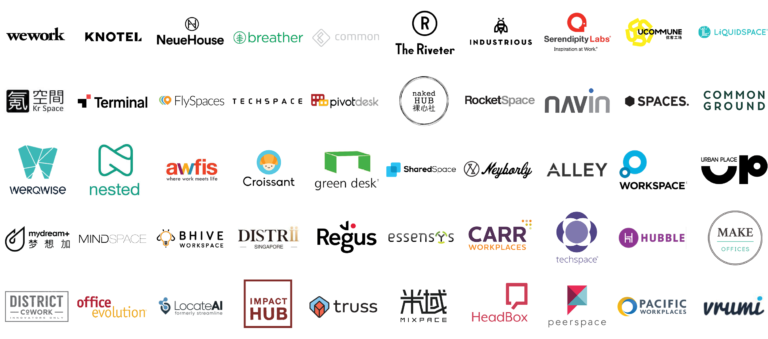Between the long-term lease commitments and the steep rise in rental prices, it’s becoming increasingly more difficult for companies to set up shop in metropolitan areas. But it might surprise you to learn that the problem isn’t a shortage of space. Unutilized office space is like a massive untapped natural resource in our urban centres. IBM estimates that of the 12 billion square feet commercial estate space in the US, only 67% is being utilized. As a result, businesses are looking for ways to better use their existing spaces or move into a more cost-effective environment.
For most organizations working in an office environment, real estate is the second largest cost after personnel. According to CBRE, occupancy costs in Hong Kong has reached $306 per square foot each year. London sits at $235, New York at $184 and Tokyo at $172. These exponential costs have caused many organizations to consider two major trends within the sharing economy:
Remote Work: Technology has allowed for several job roles to become highly mobile and it’s also a major incentive for some employees. A survey conducted by Deloitte of over ten thousand millennials across 36 countries highlighted that employers offering flexible work arrangements achieve greater profitability and a higher degree of employee loyalty.
Space-as-a-Service: With the space-as-a-service model, tenants have the option to move away from long-term leases and underutilized spaces, and instead, take advantage of more flexible options like co-working offices. They simply pay for the time they need an office and cancel when they no longer need the space. The model optimizes real asset utilization and reduces capital expense by allowing a coworking space to cover equipment and maintenance costs.
The combination of these two trends has caused a wide range of commercial real estate businesses to investigate opportunities in the co-working sector. Though The We Company has played a significant role in normalizing the concept of space-as-a-service, there are a number of other players who have received substantial interest from investors.

Startups from around the world are increasingly optimizing spaces to accommodate project teams and limiting the corporation’s real estate liabilities. At R-LABS, we believe that space-as-a-service will shape the future of commercial real estate and change the way businesses source office space going forward. Though the growth of space-as-a-service providers will be impacted by the business cycle, we predict that the demand will continue to rise over both medium and long-term lease options. The digital era is rooted in flexibility and convenience; we expect the market to maintain these values and reward the businesses who leverage this approach in their physical environments.
Disclaimer: While we use reasonable efforts to include accurate and up-to-date information, we do not represent, warrant or promise (whether expressly or by implication) that any Content (including any information sourced from third parties or estimates calculated by us) is or remains available, accurate, complete and up-to-date, free from bugs, errors or omissions or fit or suitable for any purpose. R-LABS Canada Inc., its shareholders, directors, officers, employees, representatives and agents will not be liable to you or any third party for any indirect, special, incidental, punitive, exemplary or consequential damages in connection with the use of this information.




